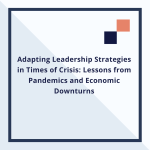In today's rapidly evolving business landscape, executive leadership stands as the cornerstone of organizational success. Leaders at the executive level are tasked not only with making crucial decisions but also with setting the vision, culture, and direction for the entire company. Their influence extends far beyond daily operations, shaping the future of the organization through strategic insight and decisive action.
An effective executive leader is more than just a figurehead; they are visionaries who anticipate market trends, mitigate risks, and seize opportunities. They inspire their teams to work toward a shared goal, aligning individual efforts with the company’s overarching mission. This requires a blend of skills: strategic thinking, emotional intelligence, and the ability to foster collaboration across departments.
One of the most critical aspects of executive leadership is decision-making. Executives are often faced with complex choices that require balancing short-term gains with long-term sustainability. The best leaders leverage data, industry insights, and diverse perspectives from their leadership teams to make informed decisions that benefit the company holistically.
Another key element is adaptability. The business environment is constantly changing, with disruptions from technology, economics, and competition. Successful executives embrace change, lead through uncertainty, and motivate their teams to innovate and remain agile. They understand that fostering a culture of continuous learning and openness to new ideas is essential for staying competitive.
Ultimately, executive leadership is about empowering others to achieve their best. A strong executive leader builds trust, communicates clearly, and leads by example. Through their vision, adaptability, and commitment to growth, they guide organizations to not just survive but thrive in a complex and competitive marketplace.






